A Georgia Tech (GT) student’s award of $1.36 million in damages was challenged and then upheld by an appellate court late in September. Nicholas Brown and his family filed a civil lawsuit after Brown fell off the Ramblin’ Wreck, a classic Model-A Ford the school uses as a mascot, while enrolled at Georgia Tech as a student back in 2009.
A Ramblin’ Tradition takes a Turn for the Worse
The vehicle is a fully restored 1930 Model-A Ford Sport Coupe. GT first introduced its “official” Ramblin’ Wreck, owned by the University System, at a football game in 1961. Previous Ramblin’ Wreck vehicles had been owned by individual students, faculty and alumni dating back to 1914, according to the school’s website.
Upkeep of the Model A is the responsibility of GT’s Ramblin’ Wreck Club, a student organization that uses the car to bolster school spirit. The car has appeared at every Georgia Tech home football game since 1961, but club members have historically driven the Model A around campus in between games to excite fans and fellow students. On these drives, club members were known to stand on the running boards outside of the vehicle.
Nicholas Brown had been standing on a running board one day back in April 2009 as members of the club were driving the car back to its garage. He had been hanging onto an exterior handle and an interior handle, as he had been taught for safety, but one of the handles suddenly snapped off as the driver made a left-hand turn. Brown fell into the street, hit his head, and lost consciousness – still grasping the broken handle.
As a result, Brown spent four days hospitalized. Though his dizziness, nausea and balance problems eventually subsided, his traumatic brain injury (TBI) resulted in a permanent loss of his senses of smell and taste. A personal injury lawsuit followed and Brown sought damages from the Board of Regents of the University System of Georgia, citing gross negligence as the cause of his injuries. The Board owned the Model A, as well as Eco-Clean Inc., the company hired to repair the Model A after a previous, unrelated accident in 2007.
Jury Finds in Favor of Traumatic Brain Injury Victim, Ruling Upheld in Appeal
In the first trial, a jury awarded Brown $2 million, but then subtracted 32 percent of the total based on Brown’s own liability, making the final award $1.36 million. The jury allocated some blame to Brown for riding the vehicle’s running boards as it was being operated “above parade/idle speeds”. However, the remaining blame was placed on the broken handle, determined to be the responsibility of Eco-Clean and the Board of Regents. Responsibility was split between the two entities, each liable for 34 percent ($680,000 each).
The defendants appealed the initial ruling, and Brown also argued that he should have been allowed to present an expert witness to better support his case. The Georgia Court of Appeals heard the case but upheld the jury’s existing award on Tuesday, September 24th.
The jury believed that “Eco-Clean failed to show that Brown failed to introduce evidence of the intended use of the handle that failed,” according to the ruling.
“The driver (in the 2007 wreck) testified subsequently that he discussed with Eco-Clean’s manager that the car needed handles to give people standing on the running board ‘something more robust to grab onto,” Judge Anne Elizabeth Barnes, who presided over the appeal, wrote for a three-judge panel. The jury ultimately found that the screws used to mount the interior “grab-handles” were inadequate to support a person attempting to hold on.
References:
Courthouse News














